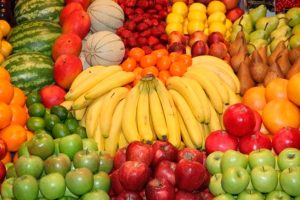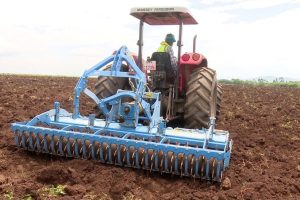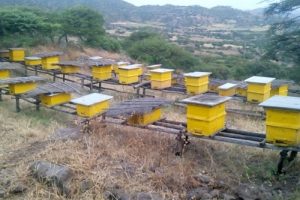
The fourth industrial revolution undoubtedly demands the application of digitization in every aspect of life to align with global competitiveness and lucrative business opportunities. Since the advent of technology and the rise of digitization, the world has experienced significant changes by harnessing the power of updated technologies and applications in people’s daily routines.
As an agrarian nation, it is crucial for the relevant authorities in the agriculture sector to embark on a journey to transform the primary economic activity into an intensive and extensive business that embraces innovation through digital apps. In pursuit of this goal, these authorities are actively adopting digital technologies and making them accessible to the public, even though there may be challenges related to literacy within the sector.
The Ethiopian Agricultural Transforma-tion Institute has recently announced its commitment to digitize agricultural information within the next three years, with the aim of benefiting over one million farmers. This initiative will enable farmers to access agricultural information through a mobile application called Lersha. The institute has partnered with Green Agro Solutions Private Limited Liability Company to make this application available to farmers.
According to Dr. Mandefro Nigussie, Chief Executive Officer of the Ethiopian Agricultural Transformation Agency (ATA), digital agriculture empowers farmers to easily access the information and advice they need through their mobile phones while also facilitating the collection of agricultural data in a centralized database.
Dr. Mandefro emphasized the need for large-scale efforts to digitize agriculture and highlighted the importance of involving the private sector alongside government institutions to bring this vision to life. He also emphasized the cost and time-saving potential of consolidating digital agricultural information into a single database.
Dr. Mandefro expressed his commitment to collaborating with the private sector in developing an application that will enable the implementation of this digital transformation. In addition to digitizing agricultural information, the application will provide farmers with the necessary information and recommendations directly on their phones.
The agreement between the Ethiopian Agricultural Transformation Institute and Green Agro Solutions Private Limited will span three years and cover 150 districts in Amhara, Oromia, Tigray, Central Ethiopia, and the Somali regions. To ensure accessibility, the application will be designed to be user-friendly for literate farmers. For those without access to smart phones, internet kiosks have been established at farmers’ training centers, and development workers have been trained to make the service available.
Dr. Mandefro further emphasized that after three years, the application will expand its reach to more sectors, ensuring its effectiveness and impact. Abraham Andreas, Managing Director of Green Agro Solutions Private Limited, stated that the Lersha App aims to provide multiple services to farmers with small fields through a single platform. This partnership aims to address challenges that organizations alone cannot solve.
Abraham highlighted the significance of information in digital agriculture and affirmed that the application will provide comprehensive information and recommendations to over one million farmers within the next three years. It is worth noting that the Lersha app has already served over 100,000 farmers in the past four years. Agricultural applications encompass a wide range of activities, including soil cultivation and modification, crop production and improvement, livestock and poultry rising and the development of forest products.
As Africa progresses towards a know ledge based economy, the development of smartphone apps is playing a pivotal role in driving agricultural advancements. These apps have the potential to lower prices for consumers and help farmers optimize their production. Traditional farming models often lead farmers astray due to inaccurate information, leading to the use of counterfeit or subpar seeds. Fortunately, there are several smartphone apps that are improving agriculture across Africa.
One such app is GeoFarmer, which utilizes internet communication technology (ICT) to enable farmers to manage their farms and crops. Farmers can share their experiences with other farmers and experts, fostering a free-flowing exchange of knowledge that helps improve yield and reduce risks. While many ICT programs remain inaccessible to a large portion of farmers due to usability issues and costs, GeoFarmer provides a cost-effective alternative. Farmers can use the app offline or in rural areas with limited connectivity, leveraging near-real-time data services to co-innovate and enhance their performance.
Another notable app is Pix Fruit, jointly developed by CIRAD and the Senegalese Institute for Agricultural Research. This app streamlines the supply chain, leading to reduced costs for consumers. Traditionally, fruit farmers estimate their crop size by counting fruit on a single tree and extrapolating it to the entire farm.
However, this method has a significant margin of error. Pix Fruit offers a simple solution by allowing farmers to take photos of the fruit on selected trees using their smart phones. Leveraging fruit-recognition technology and data from drones that capture information on climate, sales constraints, and soil conditions, the app calculates the probable overall harvest. This empowers farmers to determine the true value of their crops and negotiate fair prices.
TruTrade is another app that is making a positive impact on agriculture in Africa. This app focuses on Uganda and Kenya and aims to provide fair prices to farmers. It offers valuable information on crop valuation, market pricing, and market trends. TruTrade connects smallholder farmers directly to buyers, cutting out middlemen and ensuring that farmers receive fair prices for their crops.
The app also provides transparency in the supply chain, which benefits both farmers and consumers. By eliminating price exploitation and promoting fair trade, TruTrade contributes to poverty reduction and economic empowerment in rural communities.
Furthermore, the development of agricultural apps goes hand in hand with the growing availability of smart phones in Africa. As smart phone penetration continues to increase, more farmers have access to these digital tools. This presents an opportunity to bridge the information gap and provide farmers with valuable resources and knowledge to improve their farming practices.
In conclusion, the digitization of agriculture in Ethiopia through the Lersha app and the broader advancements in agricultural apps across Africa are revolutionizing the sector. These apps empower farmers by providing them with access to information, resources, and market opportunities.
By embracing digital technologies, governments, private companies, and development organizations are contributing to the transformation of agriculture into a knowledge-based economy. As these initiatives continue to expand and evolve, they have the potential to enhance productivity, reduce poverty, and create sustainable agricultural practices in Africa.
BY LAKACHEW ATINAFU
THE ETHIOPIAN HERALD SUNDAY EDITION 3 SEPTEMBER 2023





